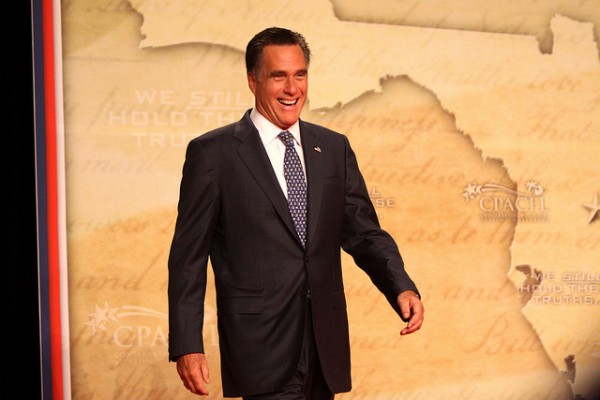At Debate, Romney Plays for Independents and Moderates


There is little unanimity in American politics, but one instance is that former Massachusetts governor Mitt Romney won the first presidential debate last week in Denver.
Fred Barnes of the Weekly Standard praised Wednesday as "the best night of Romney's bid for the presidency and that includes his 2008 campaign." National Review editor Rich Lowry commended that Romney, "not only won on substance, but won on optics, demeanor, and emotion. He flat-out won." Comedian and Obama supporter Bill Maher borrowed phraseology from the populist right when he joked on Twitter, "I can't believe I'm saying this, but Obama looks like he DOES need a teleprompter."
The unique aspect of Romney's debate performance was its substance. At times, Romney has been criticized for campaigning as if he was still contesting the GOP nomination: by appealing to the predilections of the right. His selection of Paul Ryan for vice president, his accusations that the Obama administration wanted to "sympathize with those waging the attacks" on September 11, 2012, and his fundraiser comment that "47%" of Americans are "dependent on the government" and how he does not have to "worry about those people" have all been steps that, despite his record as a moderate governor, inferred that he was flattering the right wing of his party.
To the chagrin of his supporters, Ryan has been underutilized and on Thursday, Romney admitted that his "47%" comments were "completely wrong." However, this and the Wednesday debate were parts of a campaign strategy to keep the base happy while Romney plays for independents and moderates.
Bucking many in his party on taxation, Romney said he would not "reduce the share of taxes paid by high-income people." He also attempted to placate both free marketeers and others by calling regulation "essential":
"You can't have a free market work if you don't have regulation."
On entitlements, Romney presented himself as the one who would save Medicare. Frequently criticizing the president for taking $716 billion out of Medicare to pay for the Affordable Care Act (ACA), Romney promised "no change for current retirees and near-retirees," while emphasizing that younger generations will have a choice between "the current Medicare program or the private plan." Romney criticized himself for his characterization of the president's plan and his own. He portrayed himself as the protector of Medicare.
On health care, Romney did not recoil from his Massachusetts plan that is often described as the forerunner to the ACA. Choosing not to dwell on the similarities of each policy, Romney emphasized the bipartisan nature of his versus the partisanship that accompanied the ACA:
"We had Republicans and Democrats come together. . . . What you did instead was to push through a plan without a single Republican vote . . . instead of bringing America together and having a discussion on this important topic, you pushed through something that you and Nancy Pelosi and Harry Reid thought was the best answer and drove it through. What we did, in a legislature 87% Democrat, we worked together. Two hundred legislators in my legislature, only two voted against the plan by the time we were finished."
Romney's strategy as personified in the immediate reaction from the debate seems to bear his strategy out. Borrowing a page from his 2002 gubernatorial campaign, Romney reminded independent voters that at least his health care plan had bipartisan support while President Obama's did not. Undecided voters watching the debate on NBC noted how Romney "stepped up" and changed the way they thought about the former governor and Romney appears to be regaining momentum with independents.
Automated polls conducted on Thursday by Rasmussen and We Ask America showed some contemporary movement. Although Romney remained static in Ohio, he gained two points in Virginia and four in Florida. The gain in Virginia is significant now that the Constitution Party's Virgil Goode, a former congressman, is officially on the ballot. Goode, who has polled as high as 9% in his home state also appeals to Republicans and independents, so Romney has an unusual amount of competition for this vote.
However, Nate Silver, a statistician who blogs for the New York Times warns:
"Polling trends can sometimes be odd in reaction to news events. One factor is that supporters of a particular candidate may be more enthusiastic, and more inclined to respond to surveys, after he gets a favorable development in the news cycle."
It took time and several mistakes for the Romney campaign to slide. It will take more debate performances like Wednesday night's to credibly change the game. Without that, his momentum may evaporate. Mitt Romney made a pitch for independent and moderate voters, and he looks to keep it up.



